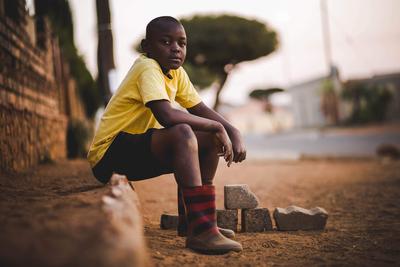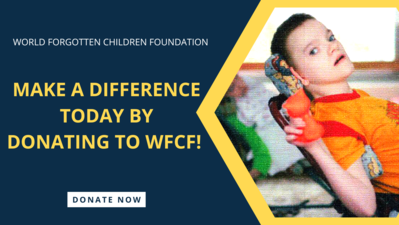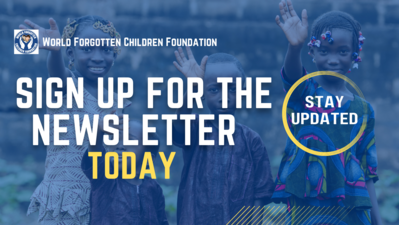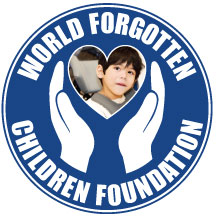
Although the effects of climate change are likely to disproportionately affect people with disabilities (PWD), they are often left out of the conversations relating to climate justice and policy pertaining to climate change. In fact, PWD are often overlooked more than any other demographic when it comes to policy decisions, which worsens their social status and increases their struggles. These obstacles usually involve lack of research material relating to climate policy not being accessible in a way that allows PWD to read or hear about the latest climate policy decisions due to inaccessible websites, inexistent braille flyers, and lack of sign language interpreters (Marangu, 2022).
The majority of African countries do not have the technology or framework to study PWD populations and understand the effects of climate change on those communities. This gets even more difficult since there are a lot of rural and remote areas that are even harder to reach and collect data for. With that being said, there are a few countries that are making progress toward better data collection, which results in better policy-making decisions for PWD. One such country is Kenya, which in a 2019 Kenya Population and Housing Census, found 900,000 Kenyans (2.2%) have some form of disability and went even further to identify that 1.9% and 2.5% were men and women respectively. Also, the majority (700,000) live in rural areas, as opposed to urban centers (200,000) (Marangu, 2022).

Using that data, Kenya is able to develop systems and data banks that showcase the effects of climate change on PWDs. One such example is the Nchiru Disability Self Help Group that is based in Egoji Ward, Meru County. This group is able to report about the water scarcity that is caused by the severe changes in weather patterns that have hurt macadamia and avocado farming activities. Furthermore, due to the dependence on firewood as the main source of energy, carbon emissions are increasing, which limits areas in which crops can be cultivated. With the help of the data being researched, the Kenyan Ministry of Environment and Forestry has been able to support over 38 county governments to aid in the development of climate change action policies. In turn, this information needs to be available in an accessible way for PWD (Marangu, 2022).
“PWDs deserve a seat at the table in climate negotiations,such as during the Conference of Parties (COP), so they can share their insights, articulate their needs and secure climate justice solutions for themselves,” read the Cancun Agreements at COP16 in Mexico, which is a United Nations Climate Change Conference. The conference identified that PWD are a population that is often disproportionately affected by severe disruptions in weather changes and climate change. The document outlines inclusion as a main segment of climate justice, with recommendations focusing on legal and policy compliance at a bigger national level. COP16 was not the only agreement that outlined such aspects of climate justice. Indeed, the Paris Agreement also fixated on the importance of including PWD when addressing climate change issues (Marangu, 2022).
Nancy Marangu, a writer for Africa Renewal, introduces the Decide, Intentionally, Connect and Educate (DICE)) approach which is drawing on some aspects of the UN Framework Convention on Climate Change and the Cancun Adaptation Framework. This includes four points:
● Decide, design and implement policies and programs that foster inclusive climate adaptations, especially relating to rural communities, and include PWD in on conversations about future projects that address the changes in their community
● Intentionally ensure that all the programs being implemented nationally include inclusive assessments of “technical, operational, personnel and financial” resources in order to equitably distribute resources that can aid in poverty mitigation
● Connect with PWD and support their engagement through a people-centered approach that focuses on the humanistic way of empowering PWD to take action regarding their own struggles and advocate for the increase of accessibility of policy-related documents
● Educate, equip and enlighten PWD with the necessary knowledge that is required to further their advocacy work and increase their understanding of climate change-related issues directly affecting them

We are facing a dangerous choice that may lead to us leaving the most vulnerable populations behind. We must do all that we can to ensure that we’re protecting communities that are impoverished and do not hold the global influence that other nations do. While other nations exacerbate the effects of climate change, unaware of the detrimental effects that those actions have on vulnerable communities, those communities continue to struggle to get their basic needs of clean water and food. The communities struggling most are often the ones that have no spotlight. At WFCF, we aim to direct the spotlight at those communities most in need. You can be part of our mission by helping WFCF today!
References:Marangu, N. (2022). COP27 can be a reset on climate justice for people with Disabilities | Africa Renewal. United Nations. Retrieved from https://www.un.org/africarenewal/magazine/july-2022/cop27-can-be-reset-climate-justice-people-disabilities
|



